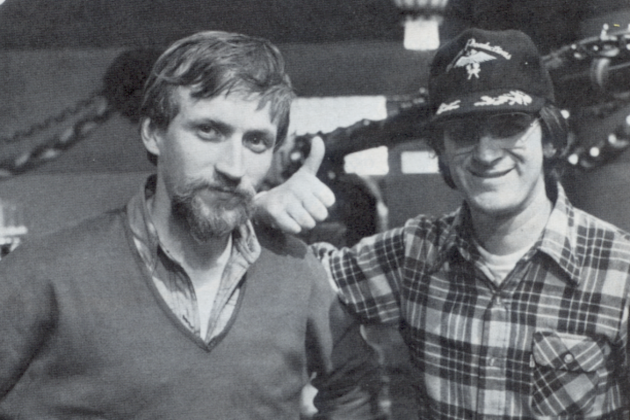Film Tech Pioneer Jean-Marie Lavalou Dies at 76

Jean-Marie Lavalou, co-inventor the world’s first remote-control camera system, which gave birth to more fluid crane shots and a new world of creative possibilities for motion pictures, passed away in Paris on July 15. He was 76.
According to a press release from Loumasystems in Paris, Lavalou passed away from a sudden and unexpected illness.
More from Variety
Roman Polanski's Lawyer Will Renew Effort to Resolve 45-Year-Old Rape Case
Steven Spielberg Directs First Music Video, for Marcus Mumford's 'Cannibal'
Roman Polanski Transcript Shows D.A.'s Concerns About Judge's 1977 Conduct
Born into a well known family of camembert cheese makers in Normandie, Lavalou’s career took its tech twist when he met inventor-partner Alain Masseron. In the 1970s, the duo devised unique camera movements while making a film inside a submarine during their national service in France.
This eventually led to the invention of the Louma Crane, which became widely used in film and television production around the world. (The term Louma derives from LOU and MA from their names.)
For the project, Lavalou and Masseron initially brought their idea to SamAlaga Cinema in Paris. Subsequent research and development in Paris, as well as alongside partner David Samuelson of Samuelson Film Services in London, with his team of engineers, resulted in the world’s first remote-controlled camera crane.
SFS financed development of the Louma, and David Samuelson is credited with having the eureka moment of combining the video assist system that was in development with the Louma project to make it remote.
An early user of the system was director Roman Polanski along with his cinematographer Sven Nykvist on 1976’s “The Tenant,” where it was deployed to create the film’s opening and closing sequence shots.
Retired Panavision executive Andy Romanoff recalls that the Louma Crane came to America in 1978 and was utilized on Steven Spielberg’s “1941,” released in 1979. The system “introduced us to a whole new camera language,” he says. (Pictured above: Lavalou, left, and Spielberg on the set of “1941,” with the Louma Crane in the background. William A. Fraker was the cinematographer.)
“Jean-Marie worked day and night adapting the crane to the demands of Hollywood filmmaking,” adds Romanoff. “In later years, he became friends with camera crews all around the world as he visited sets to hear how he could make the crane easier and more useful for them… He spent his whole life dedicated to making better tools for making movies.”
Lavalou is survived by four sisters and several nieces and nephews.
Best of Variety
Sign up for Variety’s Newsletter. For the latest news, follow us on Facebook, Twitter, and Instagram.
